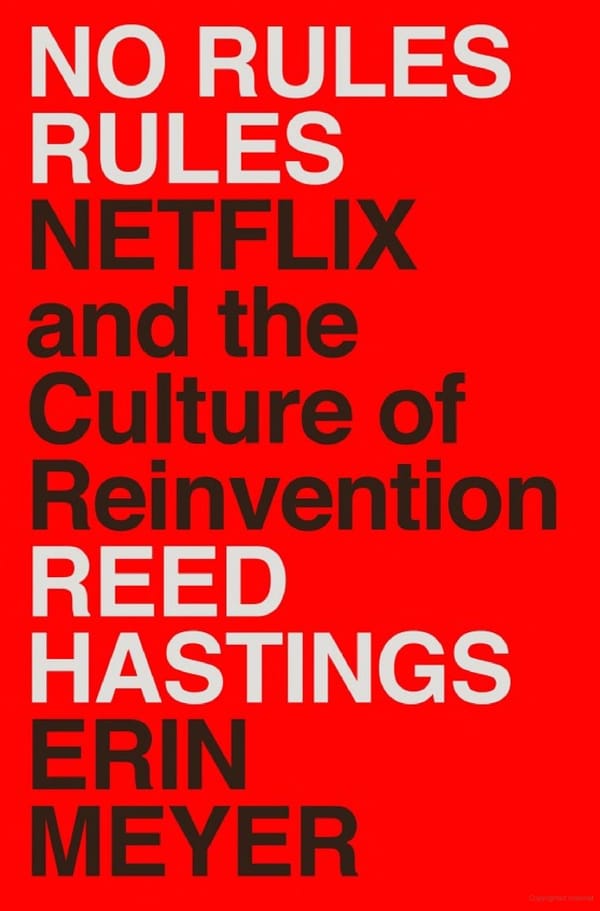Negotiation: Never Split the Difference
In life you will need to spend some of your time negotiating. It's a skill that pays in the long run. Never Split The Difference is a great starting point.

Creative solutions are almost always preceded by some degree of risk, annoyance, confusion, and conflict. Accommodation and compromise produce none of that. You’ve got to embrace the hard stuff. That’s where the great deals are. And that’s what great negotiators do.
Chris Voss spent time as the FBI’s international hostage negotiator and then offers lessons from that experience in Never Split the Difference. While the stakes (hopefully!) are much lower in daily life for you, there are still good lessons to be learned. The last thing you want is to run into a situation you fundamentally misread or handled poorly because you had no mental model of how to negotiate with someone.
Negotiation is everywhere in life, and handling it well goes a long way to making your life better. There are obvious times to negotiate, like getting a new job with a new salary, or buying a car. There are also less obvious times where the same skills can help–aligning with family members, getting your child to do their homework, and other relationships through life. Perhaps this book is most useful when thinking through the general principles of how to negotiate and when unintuitive approaches work better.
Negotiation carries an adversarial connotation in popular culture, but that’s wrong. Voss suggests:
You should engage the process with a mindset of discovery. Your goal at the outset is to extract and observe as much information as possible. Which, by the way, is one of the reasons that really smart people often have trouble being negotiators—they’re so smart they think they don’t have anything to discover.
Thinking more tactically (and borrowing from Erik Barker) here are the things to keep in mind:
- Be nice and less direct – patience goes a long way in negotiation as does your demeanor.
- Empathize (not sympathize–don’t feel their pain) by labeling the emotion (“It seems like…”). Help them feel heard.
- Try to frame questions that allow your counterpart to say no (the opposite of this is the sales call starting with ‘do you like water?’) which will give them a feeling of control. This is directly contrary to the “yes set” technique.
- Get them to say “that’s right” – “you’re right” is a disaster and will not have compliance; “that’s right” means they feel your summary was right and that they are understood.
- Compromise can often be the worst of all worlds – think one black and one brown shoe. Often there’s a better solution waiting to be discovered. There’s a famous MBA class experiment regarding splitting oranges (it turns out one side wanted the peels, the other the pulp).
- Use “what” and “how” questions to say no gently – “how am I supposed to do that?” and get them to use their energy to solve your problems. Use “it seems like” instead of “I am hearing…” because using the word “I” puts you front-and-center rather than the issue.
Some more advanced techniques:
- Listen for the “Black Swan” – the unknown unknown that can change the whole landscape of negotiation; sometimes they may not even know what it is.
- Do an accusation audit (if it’ll be a hard conversion, to set the bar low) – I know you think I’m X, Y, Z where those are all worst-belief-cases. This can be a bit risky so I’d advise doing this if you have been having trouble already. An accusation audit has the opposite effect of saying “I’m not X” which can shut down effective dialogue.
- Try mirroring by repeating the last 1-3 key words of what they say. Mirroring can be awkward so you’ll want to practice and try it first in lower-stakes situations.
Voss identifies the word “fair” as one of the most powerful in the English language. And in the context of a negotiation it’s absolutely loaded with meaning. Be careful with its use and keep an eye out for if your counterpart uses it. Voss recommends:
“I want you to feel like you are being treated fairly at all times. So please stop me at any time if you feel I’m being unfair, and we’ll address it.” It’s simple and clear and sets me up as an honest dealer. With that statement, I let people know it is okay to use that word with me if they use it honestly. As a negotiator, you should strive for a reputation of being fair.
Historically negotiation has been thought of as a “system 2” activity but it’s actually much more influenced by system 1. Plenty of research in neuroscience has linked emotion and motivation, so it’s no surprise that emotional components play a huge role in negotiation. People first generally want to be understood and so ‘listener’ should be one of your primary roles as a negotiator.
Another strength of Never Split the Difference is storytelling, from his experience as the lead FBI negotiator and in private practice. Storytelling is a very effective mechanism and many of the anecdotes were absolutely fascinating. I learn well by example and this book provided plenty of them. My favorite was the phrase “Yo, dog, how do I know she’s ok?” – a huge negotiation win in an unexpected environment.
In summary this book has plenty of useful tips and advice. It is an easy read with a practical structure and provides an excellent overview of a critical life skill.
Additional Resources:
- Erik Barker’s summary: How To Be Persuasive: 7 New Secrets From Hostage Negotiation - Barking Up The Wrong Tree
- The 2 Essential Words that can Help You Be a Great Manager
Notable quotes from the book:
If you believed Kahneman, conducting negotiations based on System 2 concepts without the tools to read, understand, and manipulate the System 1 emotional underpinning was like trying to make an omelet without first knowing how to crack an egg.
Contrary to popular opinion, listening is not a passive activity. It is the most active thing you can do.
But let me cut the list even further: it’s best to start with “what,” “how,” and sometimes “why.” Nothing else. “Who,” “when,” and “where” will often just get your counterpart to share a fact without thinking. And “why” can backfire. Regardless of what language the word “why” is translated into, it’s accusatory.
Prepare, prepare, prepare. When the pressure is on, you don’t rise to the occasion; you fall to your highest level of preparation.



